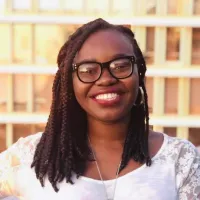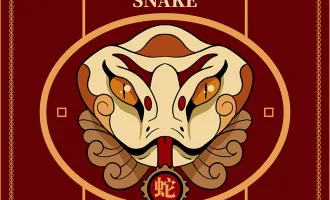Between the Lines
Slowly, slowly, almost there, got it. The tea slushes a little too close to the edge, a threat to the open notes that lie below it.
I hold my breath in anticipation as it swings back and forth like a pendulum before deciding to settle down. I lean down and sip it, embracing the sear against my tongue before settling down to get to work. Two weeks, I am 2 weeks behind.
As I scroll through the interface between me and all the knowledge I need to pass my exam. I wonder how I let it get this far.
The paper crinkles underneath my butt, revealing every slight movement past a shallow breath. I wait uncomfortably for the doctor to enter, sweat building between my palms as I rub them together. I tell myself to quit being awkward, then proceed to rub my palms some more.
The fluorescent light radiates around me bouncing off white walls punctuated by detailed insights into the human bodyand instruments to expose them to the naked eye.
A knock comes from the door making me jump despite my anticipation.
“Come in,” I croak.
“Hello,” the doctor says entering in with a smile on her face. She goes through the typical introduction script. State full name and role. Gel in. Smile more. Ask for my name. Initiate small talk about transportation.
Wait for gel to dry before getting to the meat of the matter: “Why are you here?” She leans in ever so slightly, the perfect distance to hear my worries without invading my privacy.
The pen is poised for writing. Her smile has vanished, replaced with a serious face intended to listen. It is everything we have learned, everything I am still trying to learn.
“I haven’t been feeling like myself,” I reply.
“How have you been feeling?” The ever-tight coils in my back unwind a little as I let myself slump down for a few seconds, hyperaware of the neuromuscular injuries that can develop from a chronic habit of not sitting up straight.
It was one of the first things we had learned. My back muscles, however, are not yet strong enough to hold me up, so every position elicits its own flavor of pain.
“Confused. Tired. I’m constantly tired.” Although the doctor hides it well, I can see a moment of panic as her eyes look down to her clipboard.
She isn’t prepared for what I am about to tell her and nothing in her notes can help. My chief complaint was supposed to be shoulder pain, not a vague symptom.
“Let’s start with the tiredness. When did that start?”
“I’m not quite sure, maybe a few weeks ago.”
Maybe ever since I decided I wanted to go to medical school. Maybe when I first decided to pull an all-nighter to ace my algebra test in middle school to secure higher rankings in the class.
Now I wake up most mornings feeling like I’ve been hit by a truck despite achieving the 6 to 8 recommended sleep hours.
“When do you notice you are tired?” I think back to the moments when my self-awareness allows me to see how much of a zombie I have become.
“I can’t really comment on exact times, so maybe constantly?”
The doctor does not reply for a while and I look down to notice she is staring at my nail which is bleeding after being picked too much.
I didn’t realize I was doing that. I stick the finger in my mouth and attempt to smile while waving off the offer of a Band-Aid and nodding frantically that I’m sure when re-offered. The doctor settles back in her seat and scribbles some more.
She asks more questions.
“On a level of 1-10, how tired would you say you are on average? How has that affected your daily activities? Can you tell me more about the confusion? What times do you notice you are confused? Do you have any other associated symptoms? What about the shoulder pain, when did that start?”
I reply, trying to be as honest as possible while formulating in my mind what diagnosis the movement of her pen is mapping out. I go through the checklist of everything she is supposed to ask me.
Medications, check. Past medical and surgical history, check and check. Family medical history, check.
“I’m going to ask you some questions to try to understand a little bit more about you as a person. Some of these questions can be personal so please let me know if you ever feel uncomfortable or want to skip a question.”
I nod. She forgot to ask me about my allergies.
“What does a regular day look like for you?” I try to think back to what I would consider a regular day but the last couple of days have been such a blur that it’s hard to sparse out.
“Nothing really special,” I say. “I wake up, go to class and meetings, come back home and study and do it over again.”
“Have you found yourself to be more stressed than usual?” Her eyes flicker back to my finger. I shuffle, moving them away from her view.
“I have an exam next week that I would like to pass,” I reply.
“And how do you cope with that stress?” I don’t. Somewhere in my body I imagine telomeres shortening.
“I write.”
Or I would write, if I had the time, but between stressing out about the exam and stressing out about my cortisol levels rising because I am stressing out about the exam, I don’t have any room in my head to conjure up words that will relax me.
Instead I tell myself that I will do better after the exam. The same thing I told myself the exam before this, and the one before that.
A couple more questions left.
“Thank you so much for telling me all of this. I will now share this information with my colleagues and let you know what to do moving forward,” the doctor says.
She smiles, gels out and leaves, then returns.
“How was it? Did I forget anything?”
“Allergies,” I say, “but other than that, you did really well. I really felt like you were listening and giving me the space to speak, although I didn’t have much to say.”
I force myself to sit up straighter.
“Thank you, I really appreciate you allowing me to practice taking a history with you. Also, great job integrating the material into the encounter, I almost didn’t catch it.”
I wasn’t aware that I did. She must read the confusion in my face because she follows up with, “You know the whole thing with lack of sleep and chronic stress and how that screws up the HPA axis leading to impaired memory, immune system, and what was the third thing?”
“Arousal,” I say.
When I had learned about the health implications of chronic stress, my eyes were strained from the blue light of my screen, and I could feel my heart beating in my chest from one too many cups of coffee.
Instead of calling it a night, I had made some tea instead and comforted myself with the idea that if I get through one more lecture, then that was one less thing I had to learn later.
A cough escapes my lips, a reminder that I still haven’t fully recovered from my cold.
“Yes, arousal,” she says as she takes off her short white coat and folds it.
“At first I was really confused because I thought you were going to focus more on the shoulder pain, but I think this was really helpful in consolidating the material.”
I smile. I am happy my honesty could help.
“What are you doing for the rest of the day?” she asks ready to go. I finally get up from the bed, the sound of crinkles dominating the air once more, and pick up my backpack from the floor.
“I am still trying to catch up on lecture, so I’ll probably work on that.”
“I feel you. I barely just caught up last weekend and now I feel this strange urge to check my pee whenever I go to the bathroom to see if it is maximally diluted. I’m so paranoid that I’m going to get acute kidney injury from not drinking enough water that I think I might be overdoing it.”
I have no idea what she is talking about, but I nod along as if I do. If I push through tonight maybe I will understand it when we meet up again.
I open my backpack to find my wallet as she continues talking, although I have stopped listening. Without coffee to turn it on, my brain cannot process the string of words coming from her mouth related to concepts I do not know and assignments I have not done.
“I thought you quit drinking coffee.” I didn’t realize I had been speaking out loud.
“Yeah, I did for a while, but it helps me focus,” I say.
“You know, too much coffee can be really bad for you, especially if you think about all the sugar you put in yours. It might be better to think about alternative ways to focus that won’t affect your health later, like exercise. That basically solves everything.”
I nod and add that to the running list of med school advice that I will take, as soon as I pass this exam.



